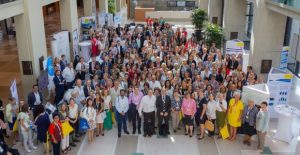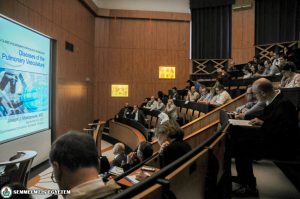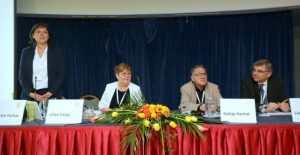Internationally acknowledged experts will present lectures at Semmelweis Symposium on 5th and 6th November 2015. Researchers, physicians and professors involved in cancer research are warmly welcome at Semmelweis University’s most prestigious scientific event, where attendance is free of charge.
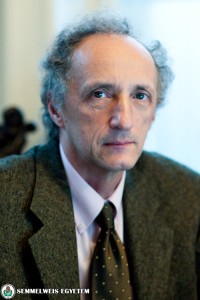 Dr. József Tímár, Director of the 2nd Department of Pathology and host of this year’s symposium emphasized Semmelweis University’s long-standing tradition and prominence in the field of cancer research. The 2nd Department of Pathology celebrates the 120th anniversary of its foundation, and a vast amount of knowledge in the field of cancer research has been accumulated over the past 100 years. This is thanks to its second director, Dr. Ödön Krompecher, who was the first pathologist at the department with specialisation in this discipline. Moreover, Semmelweis University has numerous young researchers whose projects focus on oncology and several departments, which accommodate active oncological research.
Dr. József Tímár, Director of the 2nd Department of Pathology and host of this year’s symposium emphasized Semmelweis University’s long-standing tradition and prominence in the field of cancer research. The 2nd Department of Pathology celebrates the 120th anniversary of its foundation, and a vast amount of knowledge in the field of cancer research has been accumulated over the past 100 years. This is thanks to its second director, Dr. Ödön Krompecher, who was the first pathologist at the department with specialisation in this discipline. Moreover, Semmelweis University has numerous young researchers whose projects focus on oncology and several departments, which accommodate active oncological research.
The 2-day-long symposium will provide opportunity for researchers from Semmelweis University and internationally acknowledged experts to introduce their work. Dr. Sirpa Jalkanen, member of the Finnish Academy of Sciences plays an important role in the study of immune-oncology, and she will speak about experimental cancer research. Dr. Manfred Dietel from Berlin, a renowned specialist in the routine application of molecular pathology will be present at the event as well. Dr. Christine Desmedt, a researcher excelling in breast cancer genomics and Dr. Hans-Joachim Schmoll, expert in the clinical application of directed therapy in colorectal cancer will present their achievements.
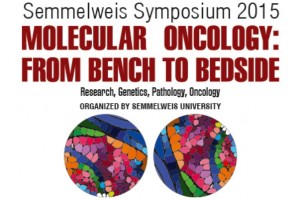 Dr. József Tímár said that the aim of the symposium is to demonstrate the pathway of research from the laboratory to the bedside through promising examples. Besides presenting the results of research, the event will try to give guidance in the field of drug development and the establishment of businesses.
Dr. József Tímár said that the aim of the symposium is to demonstrate the pathway of research from the laboratory to the bedside through promising examples. Besides presenting the results of research, the event will try to give guidance in the field of drug development and the establishment of businesses.
The event is recommended mainly to young clinicians and researchers, but it can be relevant for specialists involved in cancer research. A competition is open for Ph.D. students in basic and translational research. One of the winners will be given the possibility to give a presentation at the international symposium, while the other will have the opportunity to take part in a congress.
Just like in previous years, attendance is free of charge and the detailed programme can be accessed here.
Pálma Dobozi
Translated by: Ágnes Raubinek
